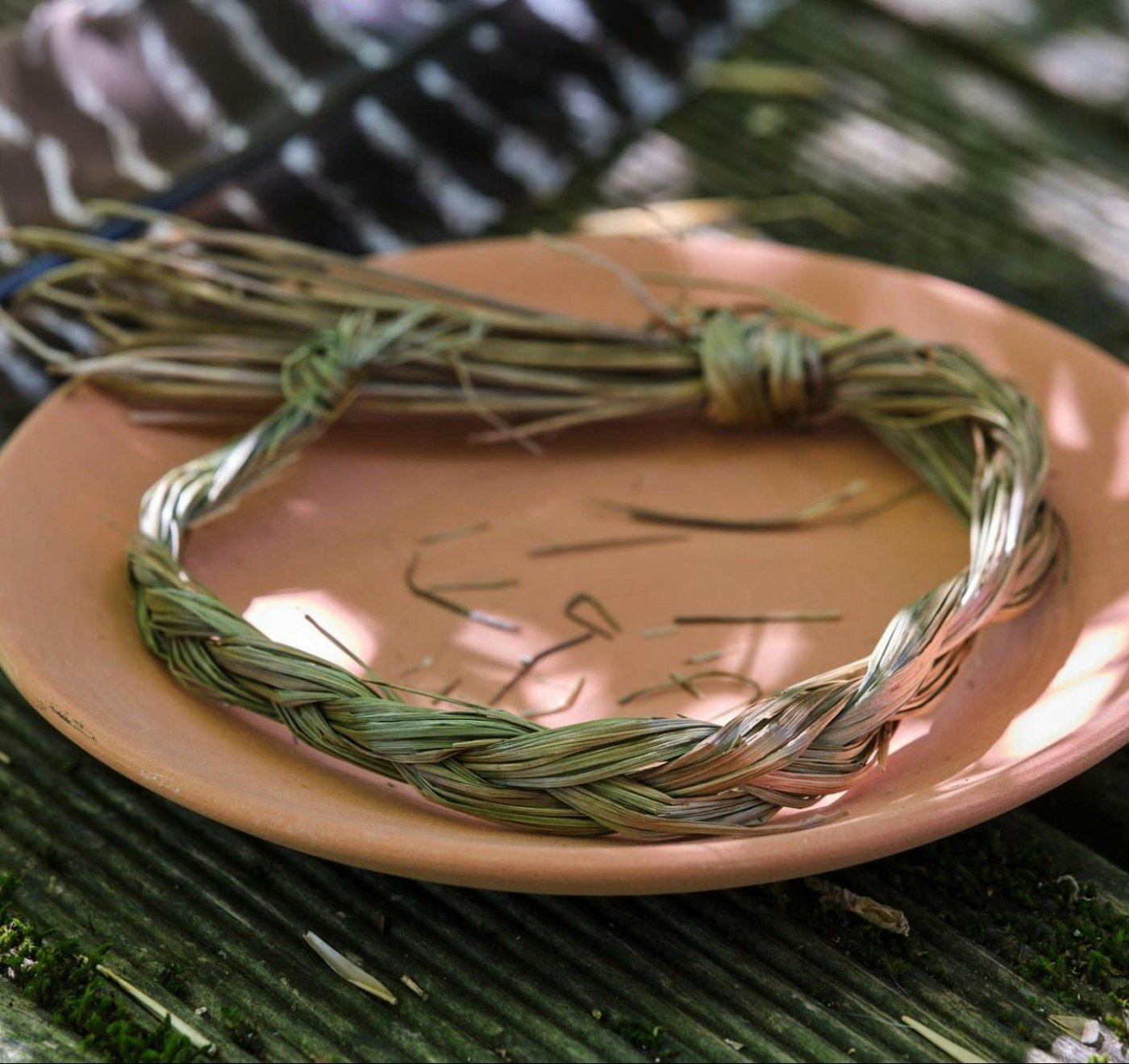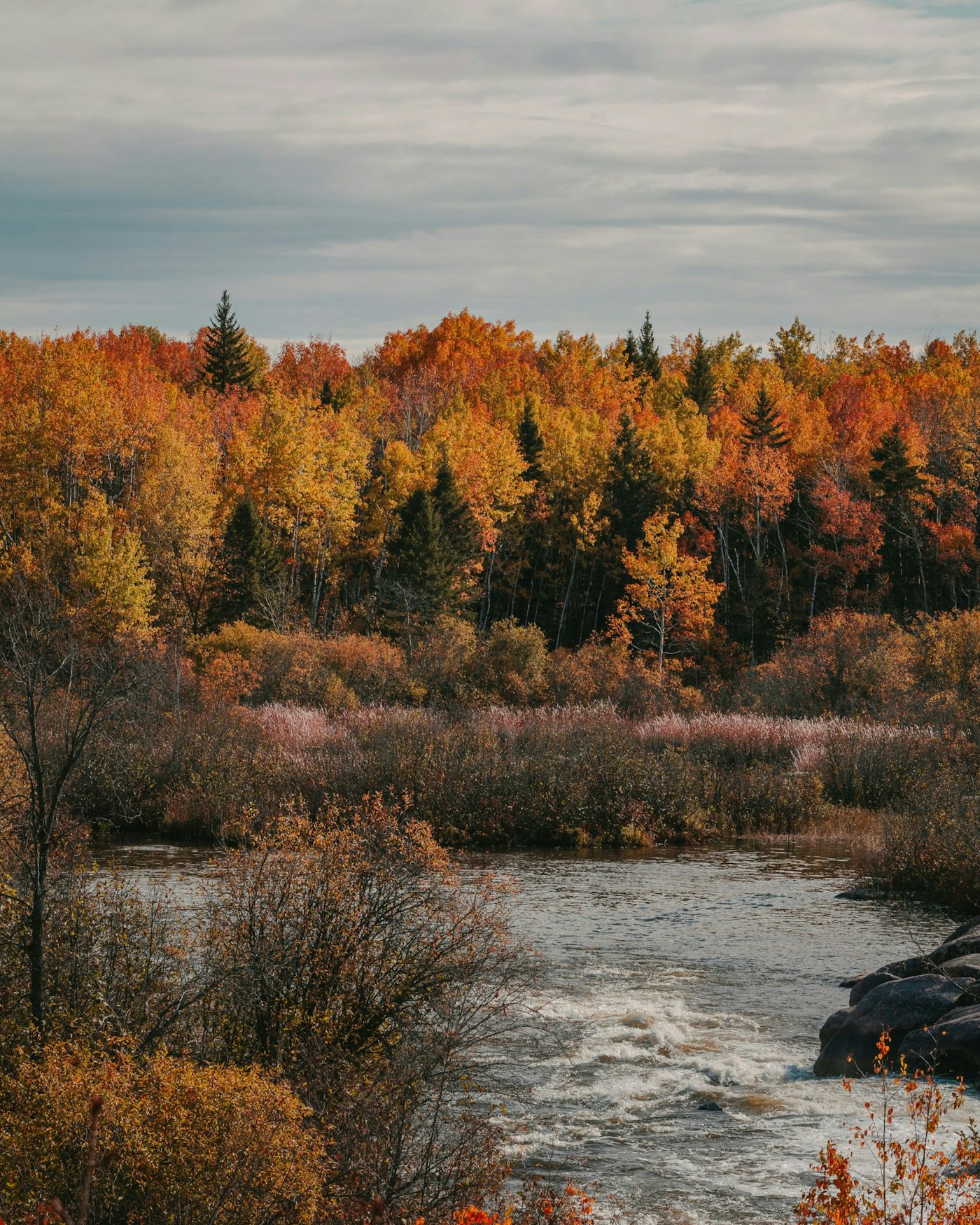Braiding Faith: Weaving Together Islam and Indigenous Identity
by Maryam Deena in Culture & Lifestyle on 1st May, 2025

People don’t often expect to meet a Muslim Indigenous woman. It is an intersection that is rare and far outside of many people’s imaginations. I do not typically write about being Indigenous in the broad sense, for my people have a name. We are the Otipemisiwak, the Michif. My ancestors are the people of the Red River, and our territory is vast, encompassing much of western Canada and some of the northern United States. However, in this article, while I will explore how I came to Islam as an Otipemisiw woman, I will defer to using the language of being Indigenous in the hopes that it is more accessible to a broader audience.
When I tell people that I am Muslim, I am typically met with surprise and sometimes shock and utter bewilderment. Sometimes there is warmth, even interest, particularly from fellow Muslims; other times, there is almost adversarial confusion, as if being Indigenous and being Muslim are two separate realities that could never coexist. As if the Indigenous world and Muslim world are so terribly far apart that they can never touch.
And what does it mean to be Indigenous? Well, for me, it means that I am a citizen of my Indigenous Nation. It means I come from my mother and grandmother, who raised me. My grandmother was a charismatic and deeply generous woman with a voice that could settle the whole house. My mother is a force of nature. She is sharp, bright, and unflinchingly honest. From them, I inherited more than a lineage, I inherited a way of being rooted in the strength of those before me. Being Indigenous means that I have a duty to protect and honour the Earth. It means that I come from a long, long bloodline of people who honoured the Creator and all of His creation. We believed in one God. In English, we often call Him simply “the Creator,” and in my language, we call God Kitche Manitou.
Yet, for many, there is no possible way to reconcile being Indigenous with being called to follow Islam or the teachings of the Prophet Muhammad ﷺ. I imagine part of it is that my people have such a tragic history as it relates to the institutions of religion. When the Christians came to our lands, they forced conversions onto us, built residential schools, stole our children to either assimilate them or eliminate them, and built their own country on top of Indigenous Nations.
Residential schools were government-funded, Church-run “schools” that were designed to eliminate Indigenous Nations by violent assimilation. For over a century, children as young as four years old were taken from their families, often by force, then placed in these “schools” where their languages, religion, and cultural practices were forbidden. Many children suffered isolation, abuse, neglect, and medical experimentation, and many thousands died. The violence done to my people was done with the tools, language, and guise of religion. Glen Anaquod, an Elder and residential school survivor, once said, “I don’t know what kind of a God they have that likes to hurt people.”
I cannot think of a single more devastating way to harm someone or a people than to abuse them as children under the guise of God. It is a wound to the soul that is hard to put into words.
No matter how much we, as Indigenous peoples, reclaim, revitalise, and rejuvenate our cultures, there has been so much lost that our identities, our lands, and our religions will simply never be the same.
Through that lens, I can understand how some might wonder why I would turn myself over to a “foreign” religion. But the truth is, for me, Islam did not feel foreign. Although I did not take my shahada until my late twenties, I actually first read the Qur’an when I was about twelve. I did not have any thoughts of reverting then. I was just a young, curious person who liked to form my own independent opinions on things. I saw the Qur’an as not particularly different from other holy texts and put it away for over a decade.
It was in my mid-twenties that the threads that pulled me to Islam began tugging on my soul. Most people who come to spiritual revelations do so out of immense pain, and I am no different. It is not necessary to endure the details of the traumas that led me there, but the long and short of it was that I was a single mother, without a place to live, and no sense of where to turn. With my son on my hip, a diaper bag, and a basket of our belongings, I started building a new life. I asked God to show me the way.
Alhamdulilah, He ﷻ answered.
Before the end of the day, I had a safe, temporary place to live in which I had to pay no rent, so I thanked God. My bosses had immense grace for me when I told them the situation I was in, and I was able to keep my job, so I thanked God. A month or so went by, and I found child care nearby that was accepting new families, so I thanked God. A few months later, we moved to a comfy little apartment where my son has his own backyard to run and play in, so I thanked God. One day, my son, who could hardly speak any words, began speaking in full sentences, so I thanked God. It was like I woke up one day and offered myself to God. I promised that no matter if I was sent a blessing or a test, I would give the Creator my praise and my gratitude.
Eventually, I began to listen to and read the Qur’an again. I was in awe of how many similarities there were between Islam and the traditions of my own people. We, too, have always submitted ourselves to one God, one Creator. The values I read about in the Qur’an were a reflection of our traditional teachings.
In both traditions, there is a deep reverence for the land as it is a gift from the Creator. The Qur’an teaches that we are caretakers of the Earth,
“… He is the One Who has placed you as successors on earth…” (Surah Al-An’am 6:165)
“Eat and drink of Allah’s provisions, and do not go about spreading corruption in the land.” (Surah Al-Baqarah 2:60)
Indigenous understandings similarly tell us that we as human beings are obligated to maintain a respectful relationship with the land. Community and kinship are sacred to Indigenous peoples. There is a collective responsibility to care for one another in recognition that we are all a part of the same creation. A Michif Elder and grandmother, Maria Campbell, explains,
“There is a word in my language that speaks to these issues: ‘wahkohtowin.’ Today, it is translated to mean kinship, relationship, and family, as in human family. But at one time, from our place, it meant the whole of creation. And our teachings taught us that all of creation is related and interconnected to all things within it.”
In a similar vein, the Qur’an teaches,
“So give your close relatives their due, as well as the poor and the ˹needy˺ traveller. That is best for those who seek the pleasure of Allah.” (Surah Ar-Rum 30:38)
It also affirms that all of Creation is interconnected through Allah, which reflects the understandings of wahkohtowin, “The seven heavens, the earth, and all those in them glorify Him. There is not a single thing that does not glorify His praises—but you ˹simply˺ cannot comprehend their glorification” (Qur’an Surah Al-Isra 17:44)

Humility is central to Indigenous ways of being. We are taught not to put ourselves above others. In many of our languages, we did not have words for “please” or “thank you”. Before colonisation because we were simply expected to share what we had. I remember my grandmother embodied this Indigenous generosity so much so that she never locked the door in case someone in need came by. She always had a hot meal and sharp wisdom ready for whoever needed it. Indigenous people believe that we are all related through the Creator and that all beings in creation are sacred. Many Indigenous teachings underline that strength is reflected in our ability to practice restraint and humility, even in the face of hardship.
The Qur’an echoes these teachings: “The true servants of the Most Compassionate are those who walk on the earth humbly, and when the foolish address them improperly, they only respond with peace.” (Surah Al-Furqan 25:63)
Still, my apprehensions were great. How could I consider joining one of the Abrahamic religions after what the Christians have done and continue to do to my people? If I reverted to Islam, would I be abandoning my ancestors? These were not easy questions to face. Yet, I could not deny the comfort I felt when I listened to the Qur’an. I could not refute the correctness of the spiritual logic in the Qur’an. Nor could I pretend I did not see the stark similarities between the teachings of Islam and the teachings of my ancestors before colonisation.
One day, while listening to a discussion on Islamic values, I heard a Muslim person say something to the effect of, “They could burn every single Qur’an in the world, and there would be thousands rewritten by the end of the day. That’s how many people have the Qur’an memorised around the world.” While I cannot find the source (and I have tried), I have never forgotten the profound impact this realisation had. The words hit me like a thousand winds. I could hardly breathe, and my throat seized shut. I could not understand why, but I began to cry. I was totally, completely overwhelmed by the realisation that Islam is whole. It is intact. The idea that Islam is perfect is not only based on divinity, but it is based on a material reality. While Muslims, like all human beings, are not perfect, Islam itself, the message sent from Allah, still exists in its original form. As intended.
It is a reality that many Indigenous people dream about, to have a religion, a way of being, that is still whole. With Islam, suddenly, I realised I could have that. There is a way to connect to the Creator that has not been colonised, has not been corrupted, nor changed by man.
More importantly, I came to understand that becoming Muslim did not have to come at the expense of being Indigenous. Rather, I would be strengthened by the Qur’an and the teachings of the Prophet ﷺ. Perhaps, even be strengthened enough to be the person that my family and my people need me to be. I did not trade my Indigenous identity for my Muslim one, I braided them together. Just like sweetgrass, each strand makes the whole stronger.
Maryam Deena
Maryam Deena is a Michif and Muslim writer based in Regina, Saskatchewan. Her work explores identity, spirituality, motherhood, and healing. She is passionate about storytelling that uplifts others and expands our imaginations. In her free time she can be found cooking, doing art, and volunteering through writing mentorship.